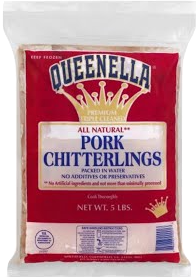Various Charcoal Tablets For Food Poisoning
Charcoal tablets have gained popularity as a natural remedy for various health concerns, including food poisoning. These tablets, typically made from activated charcoal, claim to help detoxify the body by adsorbing toxins and chemicals in the gastrointestinal tract. In this article, we will explore the different types of charcoal tablets available for the treatment of food poisoning, their mechanisms of action, benefits, potential side effects, and guidelines for safe usage.
Charcoal and its forms
Charcoal
Charcoal is a black, carbon-rich material produced by burning organic substances in low oxygen conditions, a process known as pyrolysis. The most common forms of charcoal used in medicinal applications are activated charcoal and regular charcoal. Activated charcoal tablets for food poisoning undergoes further processing to increase its surface area and porosity, making it more effective for adsorbing toxins.
What are charcoal tablets?
Charcoal tablets are compressed forms of activated charcoal, designed for easy ingestion. These tablets are available over-the-counter and are often marketed for their detoxifying properties. They can be used in various health contexts, including gastrointestinal distress, gas relief, and food poisoning.
How charcoal tablets work
Process of adsorption
The primary mechanism by which charcoal tablets exert their effects is through a process called adsorption. This is distinct from absorption, as it involves the adherence of molecules to the surface of the charcoal rather than being absorbed into its structure. Here’s how it works:
1) Surface area: Activated charcoal has an incredibly high surface area—up to 2,000 square meters per gram. This allows it to trap a significant number of toxin molecules.
2) Pore structure: The microscopic pores in activated charcoal facilitate the binding of toxins. When ingested, the charcoal comes into contact with harmful substances in the gastrointestinal tract, effectively capturing them.
3) Chemical interactions: Various chemical forces, such as van der Waals forces, aid in the adsorption process, enhancing the binding of toxins to the charcoal surface.
Role in treating food poisoning
Food poisoning occurs when a person ingests contaminated food or beverages containing harmful bacteria, viruses, or toxins. Common symptoms include nausea, vomiting, diarrhea, and abdominal cramps. Charcoal tablets can play a role in managing these symptoms by:
1) Adsorbing toxins: When taken shortly after consuming contaminated food, charcoal tablets can bind to harmful toxins, preventing their absorption into the bloodstream.
2) Reducing gastrointestinal distress: By trapping toxins and potentially reducing their effects, charcoal tablets can help alleviate symptoms of food poisoning, such as nausea and vomiting.
3) Shortening recovery time: While they do not cure food poisoning, charcoal tablets may help speed up the recovery process by reducing the toxin load on the body.
Types of charcoal tablets for food poisoning
1) Activated charcoal tablets: Activated charcoal tablets are the most common type available for the treatment of food poisoning. They are formulated specifically to maximize adsorption efficiency. The charcoal used in these tablets is derived from various sources, such as coconut shells, hardwood, or peat.
Benefits
-
-
- High adsorption capacity: These tablets effectively bind to a wide range of toxins, including those produced by bacteria.
- Ease of use: Activated charcoal tablets are easy to take, making them a convenient option for individuals experiencing symptoms of food poisoning.
-
2) Bamboo charcoal tablets: Bamboo charcoal tablets are another option that has gained popularity in wellness circles. Made from the carbonization of bamboo at high temperatures, they are thought to offer similar benefits to activated charcoal.
Benefits
-
-
- Natural source: Many people prefer bamboo charcoal for its natural origin and potential additional health benefits, such as mineral content.
- Gentle on the digestive system: Bamboo charcoal may be easier on the stomach for some individuals, providing a suitable alternative to traditional activated charcoal.
-
3) Coconut shell charcoal tablets: Coconut shell charcoal tablets are made from the carbonised shells of coconuts. They are a specific type of activated charcoal known for their high adsorption properties.
Benefits
-
-
- Sustainable source: Coconut shell charcoal is often considered more environmentally friendly due to the renewable nature of coconuts.
- Effective for detoxification: Similar to other activated charcoals, coconut shell charcoal is known for its ability to adsorb a variety of toxins.
-
4) Vegetable charcoal tablets: Vegetable charcoal tablets are made from various plant materials and are less common than the other forms mentioned. They can offer some adsorptive properties but may not be as potent as activated charcoal.
Benefits
-
-
- Plant-based option: These tablets may appeal to individuals seeking plant-derived remedies.
- Mild effects: Vegetable charcoal tablets may provide a gentler option for those who experience gastrointestinal sensitivity with stronger forms of charcoal.
-
Benefits of using charcoal tablets for food poisoning
1) Fast-acting relief: The primary advantage of charcoal tablets is their ability to provide quick relief from food poisoning symptoms. When taken soon after exposure to toxins, they can help reduce the severity of nausea and vomiting.
2) Non-toxic and natural: Activated charcoal is a natural substance that is generally considered safe for short-term use. Unlike many pharmaceuticals, charcoal tablets have minimal side effects when used appropriately.
3) Versatile usage: In addition to treating food poisoning, charcoal tablets can be used for various gastrointestinal issues, including gas, bloating, and indigestion. This versatility makes them a valuable addition to any medicine cabinet.
4) Easy to administer: Charcoal tablets are easy to swallow and do not require special preparation. This convenience is particularly beneficial when someone is feeling unwell.
Safety and side effects
While charcoal tablets are generally safe, it’s essential to be aware of potential side effects and precautions:
1) Gastrointestinal distress: Some individuals may experience mild gastrointestinal side effects, such as constipation or black stools. These effects are typically not severe but should be monitored.
2) Medication interactions: Activated charcoal can interfere with the absorption of certain medications. If you are taking prescription medications, consult a healthcare provider before using charcoal tablets to avoid potential interactions.
3) Timing and dosage: For optimal effectiveness, charcoal tablets should be taken soon after ingesting contaminated food. The usual dosage for adults is 25 to 100 grams, depending on the severity of symptoms. It is essential to follow the manufacturer’s instructions or consult a healthcare professional.
4) Not a substitute for medical care: While charcoal tablets can provide symptomatic relief, they are not a cure for food poisoning. If symptoms persist or worsen, it is crucial to seek medical attention.
Guidelines for using charcoal tablets for food poisoning
1) Know when to use them: Charcoal tablets should be taken as soon as possible after the onset of food poisoning symptoms or after suspected exposure to contaminated food. The sooner they are ingested, the more effective they are likely to be.
2) Stay hydrated: Food poisoning often leads to dehydration due to vomiting and diarrhoea. It is vital to drink plenty of fluids to stay hydrated, especially when taking charcoal tablets.
3) Consult a healthcare professional: Before using charcoal tablets, especially for food poisoning, it’s wise to consult with a healthcare provider. They can provide guidance on appropriate usage and monitor for potential complications.
4) Read labels carefully: When purchasing charcoal tablets, ensure that you choose a reputable brand. Look for products that contain activated charcoal without unnecessary additives or fillers.
Alternatives to charcoal tablets
While charcoal tablets can be effective for managing food poisoning symptoms, other remedies may also provide relief:
1) Ginger: Ginger has natural anti-nausea properties and can help alleviate symptoms of food poisoning. Ginger tea or ginger supplements may provide relief from nausea and digestive discomfort.
2) Probiotics: Probiotics can support gut health and may help restore balance after a bout of food poisoning. Consuming probiotic-rich foods, such as yogurt, or taking probiotic supplements can aid recovery.
3) Rehydration solutions: Oral rehydration solutions are vital for replenishing lost fluids and electrolytes. These solutions are particularly important for preventing dehydration in individuals suffering from diarrhoea and vomiting.
4) Rest and recovery: Giving your body time to heal is crucial. Rest is essential during recovery from food poisoning, allowing your immune system to combat the infection.
Wrapping up
Charcoal tablets can be a useful tool in managing the symptoms of food poisoning due to their ability to adsorb toxins and chemicals in the gastrointestinal tract. With various types available—such as activated charcoal, bamboo charcoal, coconut shell charcoal, and vegetable charcoal—individuals have options to choose from based on their preferences.
While generally safe, it is important to use charcoal tablets responsibly, being mindful of potential side effects and interactions with medications. As with any health issue, consulting a healthcare professional is vital for safe and effective treatment.
Understanding the role of charcoal tablets in food poisoning treatment equips individuals with knowledge to make informed decisions about their health. By recognizing when and how to use these tablets, along with complementary remedies, individuals can navigate the challenges of food poisoning more effectively and promote a faster recovery.



